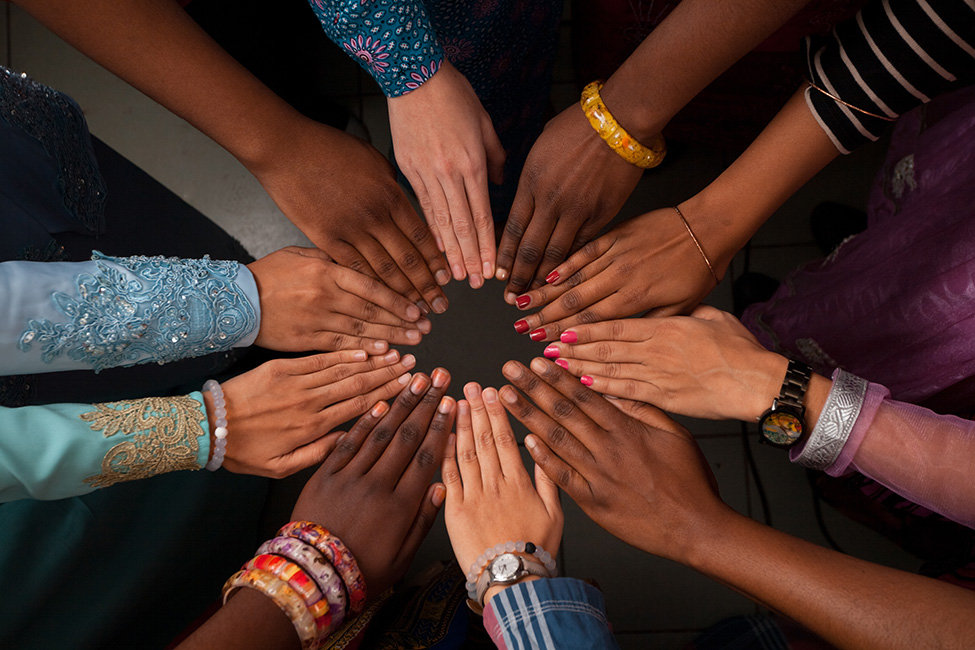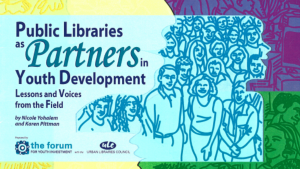
There is an unprecedented opportunity to move a national youth agenda that has development, rather than deterrence, as it’s base. Frustration with two decades of fragmented policies and programs aimed at reducing youth problems has peaked. I sense a willingness, even an eagerness, to embrace a new philosophy.
The new philosophy of youth development has three basic tenets: First, problem-free does not mean fully prepared- preventing high-risk behaviors is not enough. Our expectations for young people must be high and clear. Second, academic skills are not enough- young people are engaged in the development of a full range of competencies (social, vocational, civic, health). Third, competence, in and of itself is not enough. Skill building is best achieved when young people are confident of their abilities, contacts and resources. This means that young people need to be nurtured, guided, empowered, and challenged. They have to be engaged in constructive relationships with peers and adults.
Youth work, I think, is fundamentally about supporting youth development- building broad competencies, meeting the broad needs just described. If so, the tenets of youth work should inform this national agenda as it emerges. Most important, the leaders of youth work should be pushing this agenda. But where are the leaders? Where is the shared vision? The political platform?
What is youth work? I have heard it defined broadly that it is rendered meaningless- used as a general term to refer to anyone who works with young people- teachers, librarians, pediatricians, juvenile probation officers, clinical social workers- or so narrowly that it loses all depth, referring to only those who, in essence, have none of above titles. I have heard it linked completely to the nonprofit sector or, like social work, described as a profession whose members can be found in multiple work settings. I have heard youth work linked closely with troubled youth or with the youth described as tomorrow’s leaders.
Who are youth workers? Are they individuals who have been trained to work with young people? Not teach, monitor, or treat them, but work with them as they tackle rowing up? Or are they the individuals who, because they have not been trained to teach, control or treat, have been given the task of supervising, entertaining, and when possible, advising young people as they make their way through adolescence? Does the famous two-line phrase really have a third line: Those who can, do; those who can’t teach; those who can’t teach become youth workers?
These are not rhetorical questions. They get to the very heart of the problem. It is time for youth work to become a field. Time to articulate the value and purpose of youth work, the outcomes associate with it, and the specific practices and philosophies that define it. It is time for standards for accountability that gives the public a better understanding of their function and their value. Most important, it is time for both youth organizations and workers to define their role with more formal institutions that engage young people.
In the course of this activity, ineffective programs, organizations, and workers will be uncovered. But this weeding is one of the first steps toward recognition and legitimacy. The public knows that there are ineffective schools and teachers because they have been given assessment standards and examples. If the public is to understand that there are competencies beyond education that can and should be developed and that there are people and institutions beyond teachers and schools that are needed to spark and sustain this development, then youth work has to step out of the shadows.
I have been told by people who consider themselves youth workers that they make a difference because they care. There has to be a way to define this “caring” so that it can be recognized, assessed, taught and sustained.
If youth workers are to benefit from today’s political climate, four tasks must be done. First, articulate the outcomes that come from that caring- confidence, competence, commitment, compassion- commonly stated goals found in the literature of many organizations. Second, define the inputs that combine to constitute caring- nurturing, healing, empowering, and pushing (developing full potential). Third, outline the skills, competencies, attitudes and knowledge needed to assure that a youth worker can offer these inputs consistently. Fourth, define the organizational characteristics that are supportive of youth work- the specific missions, structures, staffing, policies, and practices that are supportive of those who choose to work with young people.
I am convinced there are lessons to be confided, synthesized and disseminated. Let’s go to work.
_______________
Pittman, K. (1992, September/October). “Let’s Make Youth Work a Field.” Washington, DC: The Forum for Youth Investment. A version of this article appears in Youth Today.



No comment yet, add your voice below!